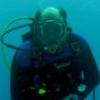
Malaria - prophylactic drugs?
#1

Posted 16 October 2007 - 02:02 PM
Do people generally follow this advice? I have an appointment with my primary doctor in a couple of days where I could ask for a prescription...
#2

Posted 16 October 2007 - 02:16 PM
So I'm about to travel for the first time to a risk area for Malaria. I've done a decent amount of traveling, just generally not to areas where Malaria was a concern. The CDC seems to recommend getting on a drug regiment of antimalarial meds prior to, during, and a bit after the visit to prevent the parasites from developing in the blood.
Do people generally follow this advice? I have an appointment with my primary doctor in a couple of days where I could ask for a prescription...
I did while in the military, but on my own I have not bothered to get a scrip. I have to kind of jump through hoops here and go to a different dr some 50 miles away for that. Personally I think the risk is not enough to warrant that kind of hassle.
But that is my personal preference, which may one day leave me sweating in a hospital wishing I weren't such an idiot.
"Winter is not a season, it's an occupation." -Sinclair Lewis
Meet Pearl and Opal, the new shark rays in Adventure Aquarium.
#3

Posted 16 October 2007 - 06:13 PM
Two cautions:
1-Many physicians are not knowledgeable on this and may prescribe wrong med. I have seen it happen. I do my own research on the CDC, take the print out to my doc, and he approved the script.
2-A druggist once tried to substitute the wrong med on me.
Hope that helps.

Yeah I know: I've been branded a non-group person - doesn't play well with others. I am so upset.
 Let me know if you want to have some fun, without the drama - I'm good for that.
Let me know if you want to have some fun, without the drama - I'm good for that.
#4

Posted 16 October 2007 - 06:45 PM
That all said, I take anti-malarials depending upon my location.
Central America .... NO
Mexico... NO
Certain southeast Asian countries ... YES
PNG.... Hell YES!
Solomon Islands ... Hell Yes!
Africa.... Double YES.
I use Malarone, and will NEVER use Lariam. I get nightmares, feel weird and generally feel yucky the entire day I take it. Have taken Tetracycline at times, but there is always that reaction incompatible with diving and being outdoors called: Photosensitivity! Ick.
As there are other health risks that can be significantly decreased with vaccines or having certain meds handy on a big trip, I fully recommend a visit to a travel specialist clinic to protect yourself.
Have a great trip!
#5

Posted 16 October 2007 - 08:38 PM
Me too. Like others stated, I checked the latest info on the CDC site and talked it through with my Primary Care Physician. He wrote the script, my insurance company blew a gasket, I paid something like $80 out of pocket and happily swatted away mosquitos knowing I had covered most of the bases...... I use Malarone ...
Rule 3) The cheaper stuff has to be taken in advance so get to your doctor a couple weeks before you go (especially if your insurance is not "generous" and you don't want to pay for it all by yourself).
'07 - Ancient Egypt/Red Sea Liveaboard
'08 - Bonaire Singles Week ...In STYLE!!!
#6

Posted 16 October 2007 - 08:41 PM
That all said, I take anti-malarials depending upon my location.
Central America .... NO
Mexico... NO
Certain southeast Asian countries ... YES
PNG.... Hell YES!
Solomon Islands ... Hell Yes!
Africa.... Double YES.
I have only been to Central America and Mexico as places of risk. I did take it for Panama, and probably would again as that trip was in the jungle. Any reason you don't take it when going to CA and Mexico?
"Winter is not a season, it's an occupation." -Sinclair Lewis
Meet Pearl and Opal, the new shark rays in Adventure Aquarium.
#7

Posted 16 October 2007 - 10:23 PM
The cdc website is excellent - and for reasons I am totally unfamiliar with, recommends different prophylaxis drugs depending on the region you're visiting.
The cdc also gives good info on other risks, and vaccinations you should get before leaving.
Jacques Yves Cousteau
#8

Posted 16 October 2007 - 11:08 PM

Yeah I know: I've been branded a non-group person - doesn't play well with others. I am so upset.
 Let me know if you want to have some fun, without the drama - I'm good for that.
Let me know if you want to have some fun, without the drama - I'm good for that.
#9
 Guest_PlatypusMan_*
Guest_PlatypusMan_*
Posted 17 October 2007 - 08:25 AM
As far as I am concerned, this was the best money spent for a trip; no worries about placing myself at risk by taking prudent precautions.
PlatypusMan
#10

Posted 17 October 2007 - 08:43 AM
Yes, but the CDC serves the general population and not divers specifically. Chloroquine is the second recommended drug DAN recommends. See the DAN article I posted.I always appreciate your comments, secretsea18. The CDC does suggest Chloroquine phosphate for Central America and parts of Mexico, there is a malaria risk, and the drug seems to have little if any side effects. I wonder why you don't bother there...?
The best way to avoid malaria is to avoid the bite:
How to Prevent Mosquito Bites
Mosquitoes are not only a nuisance--their bites can cause serious complications including the transmission of diseases such as malaria, yellow fever, encephalitis, and West Nile virus (WN) to humans and animals.
Mosquitoes belong to the Diptera order, otherwise known as the True Flies. There are over 2,500 different species of mosquitoes throughout the world with about 200 species in the United States. There are 77 species in Florida alone, and a new species, Anopheles grabhamii, was reported in the Florida Keys in 2001.
While there are many ways to deter mosquitoes from biting you, some are more toxic than others. The following suggestions give you easy ways to repel these pests:
* Use Bounce Fabric Softener Sheets--just wipe on and go. This is great for babies.
* Supplement with one vitamin B-1 tablet a day from April through October. Add 100 mg of B-1 to a B-100 Complex daily during the mosquito season.
* Don't eat bananas during mosquito season--mosquitoes love bananas! There is something about how your body processes the banana oil that attracts these female sugar-loving insects.
* One of the best natural insect repellents is Vick's Vaporub®.
* Planting marigolds around your yard works great as a bug repellent because the flowers give off a fragrance bugs do not like. This is a great way to ward off mosquitoes without using chemical insecticides.
* Campers agree that the very best mosquito repellant is Avon Skin-So-Soft® bath oil mixed half and half with rubbing alcohol.
* One of the best natural insect repellants we use in Texas is made from the clear liquid vanilla that is sold in Mexico. It is reported to work great for mosquitoes and ticks, and spreading a little vanilla mixed with olive oil on your skin smells great.
* Commercial mosquito dunks will kill mosquito larvae before they become mosquitoes. There are fairly environmentally sound biological mosquito controls containing no toxic chemicals. Each dunk affectively treats up to 100 square feet of surface water regardless of depth for about 30 days. Dunks may be broken into smaller pieces to treat small areas. Unused and dried out dunks retain their potency indefinitely, so you can store extras for the long summer season. Put them in fountains, ponds, rain gutters, flowerpot trays, and anywhere water may pool.
* Citronella soap is a product that started in the Bahamas and Belize. The soaps are made with olive oil for moisture and great lather, Aloe Vera to soothe the skin, and citronella oil to repel mosquitoes. For high intensity protection you can burn citronella incense. Mosquitoes avoid citronella and they hate the smoke.
* Citronella essential oil (Java Citronella) is considered to be the highest quality citronella on the market. The best quality is steam distilled from the grass giving it a fresh, sweet woody aroma. It blends well with geranium, cedar wood and other citrus oils. It is 100 percent pure essential oil--no additives, no dilutants, no adulteration, just safe mosquito repellent.
* Electronic repellents utilize one to two sound frequencies to simulate dragonflies and other male mosquitoes, creating a competitive environment for the blood-sucking female. These devices come with Velcro bands for wearing on your wrist or ankle, or on your pocket or belt. This makes for a versatile, compact unit that you can take anywhere for protection. Some units even have a built-in red flashlight for nighttime use.
* When all else fails--get a frog!
Most commercial insect repellants contain a chemical known as DEET and should be used with caution, if at all. Many studies have found DEET to have harmful effects. One study found that DEET causes diffuse brain cell death and behavioral changes in rats, and researchers suggest that humans may experience memory loss, headache, weakness, fatigue, muscle and joint pain, tremors and shortness of breath with heavy exposure to DEET and other insecticides.
Further, in combination with other chemicals or medications the chemicals could cause brain deficits in vulnerable populations. Children are particularly at risk for subtle brain changes because their skin more readily absorbs chemicals in the environment and chemicals more potently affect their developing nervous systems.
In the event that you choose to use DEET, although I strongly recommend against it, do not use the products on infants and be very wary of using them on children at all (at least make sure products for children contain 15 percent or less DEET). The following precautions were issued by The New York State Department of Health for repellents containing DEET:
* Store bottle out of the reach of children and read all instructions on label before applying.
* Do not let children apply DEET themselves because they may put them in their mouths or touch their eyes.
* Avoid prolonged and excessive use of DEET. Use sparingly to cover exposed skin; do not treat unexposed skin.
* Do not apply repellents in enclosed areas. This is especially important when using sprays or aerosols.
* Do not apply directly on face.
* DEET can be applied to clothing, but may damage some synthetic fabrics and plastics.
* Wash treated skin and clothing after returning indoors.
* If you believe you are having an adverse reaction to a repellent containing DEET, wash the treated area immediately and call your physician.
Tech Support - The hard we do right away; the impossible takes us a little longer...
"I like ponies on no-stop diving. They convert "ARGH!! I'M GOING TO DIE" into a mere annoyance." ~Nigel Hewitt
#11

Posted 17 October 2007 - 09:29 AM
Yes, but the CDC serves the general population and not divers specifically. Chloroquine is the second recommended drug DAN recommends. See the DAN article I posted.I always appreciate your comments, secretsea18. The CDC does suggest Chloroquine phosphate for Central America and parts of Mexico, there is a malaria risk, and the drug seems to have little if any side effects. I wonder why you don't bother there...?
And to make this thread usable without looking at a trip thread not everyone may be be paying attention to if they aren't going, this is the DAN article shadragon refers to.
I didn't read the DAN article as promoting the drugs in any universal order, apart from expressing some concern about Mefloquine/Lariam & diving. The recommendations they use seem to be those of the CDC which seem to be based on regional development of chloroquine-resistant strains of malaria.
From the DAN article:
Travelers to malaria-risk areas in South America, Africa, the Indian subcontinent, Asia and the South Pacific should take one of the following drugs:
Travelers to the borders of Thailand with Burma (Myanmar) and Cambodia, the western provinces of Cambodia, and in the eastern states of Burma should read "Malaria Information for Travelers to Southeast Asia" at www.cdc.gov/travel/malariadrugs.htm. Mefloquine resistance has been reported in these areas and either doxycycline or Malarone are the recommended antimalarial drug.
- Mefloquine;
- Doxycycline; or
- Atovaquone/proguanil Malarone™.
Travelers to malaria-risk areas in Mexico, Haiti, the Dominican Republic, certain countries in Central America, the Middle East, and Eastern Europe should take chloroquine or hydroxychloroquine sulfate as their antimalarial drug.
#12

Posted 17 October 2007 - 11:40 AM
Thanks for the link. Are you following me? hahaha You are correct Fordan. I read this in another DAN (South Africa) article:I didn't read the DAN article as promoting the drugs in any universal order, apart from expressing some concern about Mefloquine/Lariam & diving. The recommendations they use seem to be those of the CDC which seem to be based on regional development of chloroquine-resistant strains of malaria.
The combination of Chloroquine & Proguanil is about 65% effective. It is DAN's second choice for malaria prophylaxis in areas of resistant malaria and a first choice in areas of low or absent resistance due to the benign side-effect profile of the drugs.
I typically don't quote multiple articles with essentially the same content. The Google search I did found 127,000 pages. The thread you put here is more recent than the South African one.
Tech Support - The hard we do right away; the impossible takes us a little longer...
"I like ponies on no-stop diving. They convert "ARGH!! I'M GOING TO DIE" into a mere annoyance." ~Nigel Hewitt
#13

Posted 17 October 2007 - 01:18 PM
Okaaaaaay, old South African publications notwithstanding, what was the objection to following CDC suggestions with a physicians approval...?Thanks for the link. Are you following me? hahaha You are correct Fordan. I read this in another DAN (South Africa) article:I didn't read the DAN article as promoting the drugs in any universal order, apart from expressing some concern about Mefloquine/Lariam & diving. The recommendations they use seem to be those of the CDC which seem to be based on regional development of chloroquine-resistant strains of malaria.
The combination of Chloroquine & Proguanil is about 65% effective. It is DAN's second choice for malaria prophylaxis in areas of resistant malaria and a first choice in areas of low or absent resistance due to the benign side-effect profile of the drugs.
I typically don't quote multiple articles with essentially the same content. The Google search I did found 127,000 pages. The thread you put here is more recent than the South African one.
BTW, some of these have been greatly discounted, I think, i.e. Bounce Fabric Softener Sheets, Vick's Vaporub, planting marigolds around your yard (on a dive trip?), Avon Skin-So-Soft, and the clear liquid vanilla that is sold in Mexico do not compare well to DEET. Can't use DEET before diving in some areas, but after - hell yeah!

Yeah I know: I've been branded a non-group person - doesn't play well with others. I am so upset.
 Let me know if you want to have some fun, without the drama - I'm good for that.
Let me know if you want to have some fun, without the drama - I'm good for that.
#14

Posted 17 October 2007 - 02:38 PM
Don where have you found that skin so soft etc does not work? Please provide any sources as viable alternatives to DEET are important especially to people who travel a lot and would then get lots of exposure to DEET if used on every international trip.
Contact me directly at Kamala@SingleDivers.com for your private or group travel needs or 864-557-6079 AND don't miss SD's 2018-2021 Trips! ....here! Most are once in a lifetime opportunities...don't miss the chance to go!!
SD LEGACY/OLD/MANUAL Forms & Documents.... here !
Click here TO PAY for Merchandise, Membership, or Travel
"Imitation is the sincerest flattery." - Gandhi
"Imitation is proof that originality is rare." - ScubaHawk
SingleDivers.com...often imitated...never duplicated!
Kamala Shadduck c/o SingleDivers.com LLC
2234 North Federal Hwy, #1010 Boca Raton, FL 33431
formerly...
710 Dive Buddy Lane; Salem, SC 29676
864-557-6079 tel/celfone/office or tollfree fax 888-480-0906
#15

Posted 17 October 2007 - 05:15 PM
The only way to completely prevent malaria is to prevent mossies from biting you. You can use nets and permethrin on the clothing, also using long sleeve shirts and pants, avoiding the risky time of the hour around dawn and dusk, and being on liveaboards can help vs landbased, as mossies can only fly ~300 yards (but can be blown by wind a lot farther).
There is one "chinese" treatment that is being tested, and I have heard from friends from PNG that it can really treat malaria (in their experience), but that is hearsay and not scientifically proven with clinical trials comparing the various methods of prevention and treatment. But there is no 100% preventative. I try very much to avoid gettin bit, as I hate mossie bites, and will put up with the smell of DEET long before I will be willing to get a single mossie bite in many lands that I want to go to.
You do not want to get malaria, nor dengue fever, nor any or the other nasty things that you can get from mossies.
0 user(s) are reading this topic
0 members, 0 guests, 0 anonymous users



















